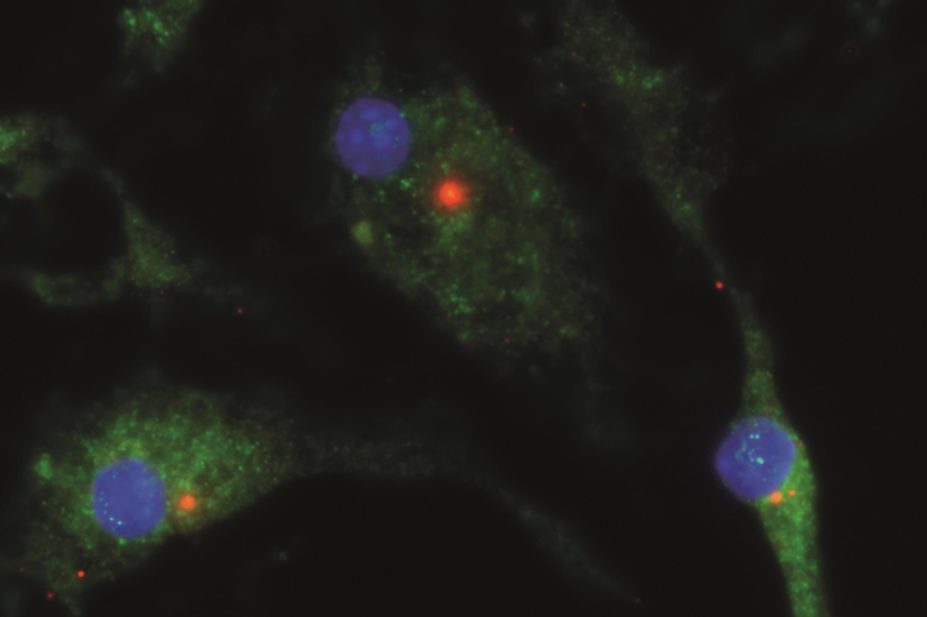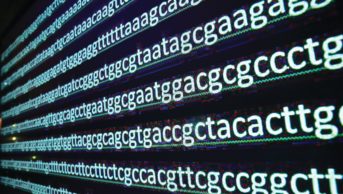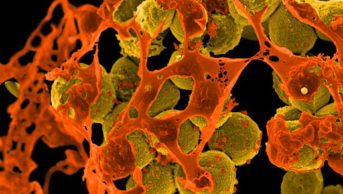
Rebecca Coll
Two separate research groups have identified compounds that can inhibit components of the immune system that are involved in several inflammatory disorders in humans, according to research published in Nature.
A team led by investigators from the University of Queensland in Brisbane, Australia, and the Trinity Biomedical Sciences Institute at Trinity College in Dublin looked at an intracellular signalling molecule NLRP3, part of the NLR group of proteins, which act as catalysts for the inflammatory process. The team identified a small-molecule compound, MCC950, which inhibits activati
on of NLRP3
[1]
.
Activation of NLRP3 plays a key role in inherited disorders such as cryopyrin-associated periodic syndromes (CAPS), a group of rare, inherited, auto-inflammatory diseases, as well as in diseases such as multiple sclerosis, type 2 diabetes, Alzheimer’s disease and atherosclerosis. The protein is also thought to play a role in the development of liver disease, kidney disease and ageing.
“This is very exciting because now we have a potential therapeutic for many diseases for which there is an unmet medical need,” says Luke O’Neill, one of the study’s co-authors and chair of the biochemistry department at Trinity College.
The researchers found that MCC950 reduced the severity of disease in mice models of both CAPS and multiple sclerosis. The compound also showed clear anti-inflammatory properties in blood samples taken from patients with Muckle-Wells Syndrome, one of the CAPS group of diseases in which NRLP3 is particularly active.
The research team believes MCC950 inhibits NRLP3 by binding directly to it or interfering with its regulation in some way. The compound was not effective in blocking other inflammasomes, such as AIM2, NLRC4 or NLRP1, O’Neill says.
O’Neill was reluctant to speculate about how soon the compound might be ready to be tested in clinical trials, but says he is optimistic about its prospects, noting that it is “orally active and has the right kinds of properties to have effect in patients”.
In a separate study
[2]
,
researchers led by a team from the Yale School of Medicine in New Haven, Connecticut, found that the ketone bodies β-hydroxybutyrate (BHB) — which are elevated during starvation, caloric restriction, high-intensity exercise or a low-carbohydrate ketogenic diet — suppress the activation of NLRP3.
The Yale team notes that the research suggests “dietary or pharmacological approaches to elevate BHB — without inducing the generalised starvation response — hold promise in reducing the severity of NLRP3-mediated chronic inflammatory diseases”.
References
[1] Coll RC, Robertson AAB, Chae JJ et al . A small-molecule inhibitor of the NLRP3 inflammasome for the treatment of inflammatory diseases. Nature 2015. doi:10.1038/nm.3806.
[2] Youm Y-H, Nguyen KY, Grant RW et al. The ketone metabolite β-hydroxybutyrate blocks NLRP3 inflammasome–mediated inflammatory disease. Nature 2015. doi:10.1038/nm.3804.


